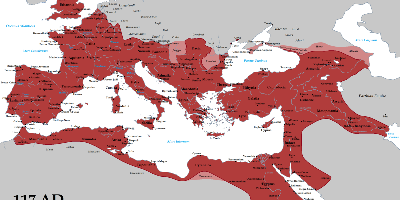8 dic 1965 anni - Vatican II Ends
Descrizione:
The Second Ecumenical Council of the Vatican, commonly known as the Second Vatican Council or Vatican II, addressed relations between the Catholic Church and the modern world. The council, through the Holy See, was formally opened under the pontificate of Pope John XXIII on 11 October 1962 and was closed under Pope Paul VI on the Solemnity of the Immaculate Conception on 8 December 1965.Several changes resulted from the council, including the renewal of consecrated life with a revised charism, ecumenical efforts towards dialogue with other religions, and the universal call to holiness, which according to Pope Paul VI was "the most characteristic and ultimate purpose of the teachings of the Council".
According to Pope Benedict XVI, the most important and essential message of the council is "the Paschal Mystery as the center of what it is to be Christian and therefore of the Christian life, the Christian year, the Christian seasons". Other changes which followed the council included the widespread use of vernacular languages in the Mass instead of Latin, the subtle disuse of ornate clerical regalia, the revision of Eucharistic (liturgical) prayers, the abbreviation of the liturgical calendar, the ability to celebrate the Mass versus populum (with the officiant facing the congregation), as well as ad orientem (facing the "East" and the Crucifix), and modern aesthetic changes encompassing contemporary Catholic liturgical music and artwork. Many of these changes remain divisive among the Catholic faithful.
Of those who took part in the council's opening session, four have become popes: Cardinal Giovanni Battista Montini, who on succeeding John XXIII took the name Pope Paul VI; Bishop Albino Luciani, the future Pope John Paul I; Bishop Karol Wojtyła, who became Pope John Paul II; and Father Joseph Ratzinger, present as a theological consultant, who became Pope Benedict XVI.
In the 1950s, theological and biblical studies in the Catholic Church had begun to sway away from the Neo-Scholasticism and biblical literalism which a reaction to Catholic modernism had enforced since the First Vatican Council. This shift could be seen in theologians such as Karl Rahner, Michael Herbert, and John Courtney Murray who looked to integrate modern human experience with church principles based on Jesus Christ, as well as others such as Yves Congar, Joseph Ratzinger and Henri de Lubac, who looked to an accurate understanding of scripture and the early Church Fathers as a source of renewal (ressourcement).
At the same time, the world's bishops faced challenges driven by political, social, economic, and technological change. Some of these bishops sought new ways of addressing those challenges. The First Vatican Council had been held nearly a century before but had been cut short in 1870 when the Italian Army entered the city of Rome at the end of Italian unification. As a result, only deliberations on the role of the papacy and the congruent relationship of faith and reason were completed, with examination of pastoral issues concerning the direction of the Church left unaddressed.
Pope John XXIII, however, gave notice of his intention to convene the Council on 25 January 1959, less than three months after his election in October 1958. This sudden announcement, which caught the Curia by surprise, caused little initial official comment from Church insiders. Reaction to the announcement was widespread and largely positive from both religious and secular leaders outside the Catholic Church, and the council was formally summoned by the apostolic constitution Humanae Salutis on 25 December 1961. In various discussions before the Council convened, John XXIII said that it was time to "open the windows [of the Church] and let in some fresh air". He invited other Christians outside the Catholic Church to send observers to the Council. Acceptances came from both the Eastern Orthodox Church and Protestant denominations as internal observers, but these observers did not cast votes in the approbation of the conciliar documents.
Aggiunto al nastro di tempo:
Data:
8 dic 1965 anni
Adesso
~ 59 years ago
